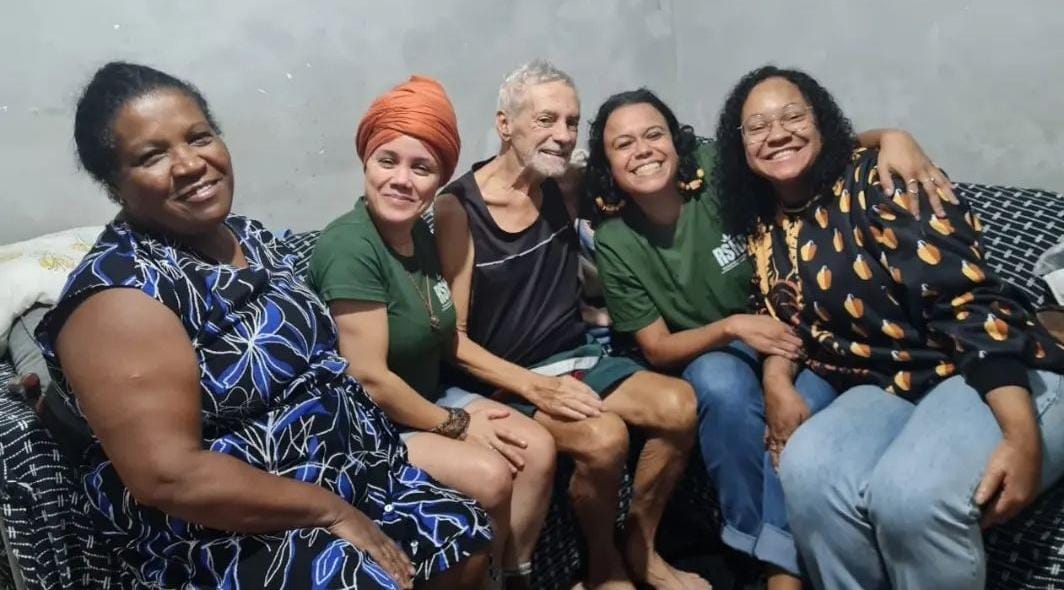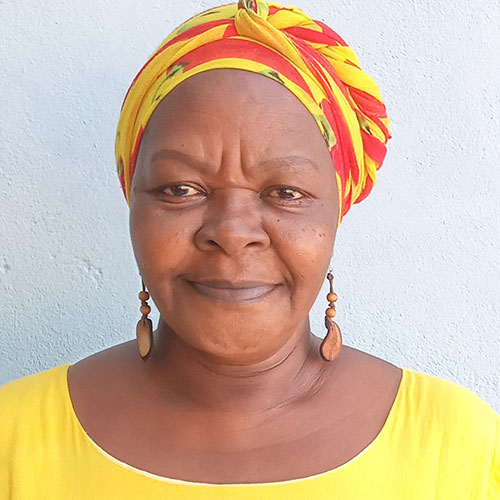RSHA Collective aims to promote social and historical reparation through the therapeutic use of Cannabis Sativa
RSHA Collective offers actions focused on improving the quality of life of people in vulnerable situations


RSHA Collective is a project that provides access to health, information, training and growth opportunities for poor, black, mixed-race, indigenous people and residents of favelas in Brazil. It is a social movement also coordinated and planned by poor, black and mixed-race people living in the peripheries, which aims to promote social and historical reparation for this public through the therapeutic use of Cannabis Sativa, popularly known as marijuana.
The project began when Fran Assis, one of the coordinators of RSHA and creator of the Movimento Fibrocannabis (‘Fibrocannabis Movement’), brought together black and brown people, residents of favelas, poor people, all involved in social and anti-prohibitionist movements, who stood against racist and exclusionary actions in the cannabis environment.
What made Fran come up with this idea?
She says it was a great indignation to see non-black and elitist people talking about social reparation without any action and, especially, without the effective participation of those who suffer directly from prohibitionism, discrimination and the war on drugs. Fran refers to the facade representations, the big profits and the misunderstanding that offering quota or exemption a kind of favor. All scenarios where poor people have to humiliate and expose themselves to get access to therapeutic cannabis treatment. Fran understands that there is no justice without reparation and that it is not possible to talk about social reparation without the active participation of the people who are the target of this action.
RSHA offers support for regular and safe access to therapeutic treatment with cannabis derivatives; health education with consultancy and support for integrative treatment from an ancestral perspective; medical referral; offer of vacancies and quotas for training courses, events and actions that promote ascension and access to the target audience; in addition to mapping partners and supporters.
Who is the target audience of RSHA Collective?
RSHA’s actions are aimed at people throughout the national territory who are black, brown, indigenous, living in favelas and peripheries, especially people with low income and in a situation of financial vulnerability. In order to benefit, it is necessary to fill out the two forms whose links are at the end of this article. Through them, a screening and assessment of the need and degree of priority of each candidate will be made.
Fran talks about the impact on the quality of life of the people assisted. “The collective understands that the impacts of the actions affect the entire collective network. Everyone who participates in the chain, no matter how, benefits from the project. Be it the members of the collective, who report direct and indirect impacts on their lives and their families; the exchange of knowledge, the improvement of quality of life, empowerment, racial literacy, race and class awareness, the strengthening of affective ties, access to health and the approach to new spaces and new experiences in the marijuana scenario. All of these are impacts caused by the collective, in addition to the patients who score other results, such as the dissemination of information about marijuana and prejudices, history, how prohibitionism took place and how it still crosses us. And also what the drug wars are and how we can, as a society, impact public policies,” she says.
Challenges and victories
The coordinator Paula Duarte is a pharmacist, executive manager in the cannabis area and postgraduate student in Cannabis Sativa at SBEC. She explains that it is always easier to point out the challenges, in this case even more evident, since this is a subject that is not yet legalized in the country and that unfortunately is in the sphere of morality. In addition, she says that we are in a country with colonizing roots and backward policies, based on eugenicist, elitist, sexist and oppressive thoughts. However, according to the coordinator, we need to focus on our advances and, consequently, on our victories, because the challenges will always appear and are given to strengthen us. “Our victories are palpable, even though it is a very new project, it already reaches several territories in our country,” she says.
Here’s how to help
You can help this project grow through donations, through Pix (instant electronic payment system in Brazil) or through the collective’s online campaigns/fundraising.
You are also welcome to volunteer or collaborate, according to your knowledge in the field of treatment with medical cannabis, or by sponsoring a patient and purchasing products from the social tent, such as shirts, bottoms, ecobags, and others. Consulting, mentoring and courses are also offered.
“If you believe you can contribute to the project by being part of it, to grow together and also be reached by the repair, come along!” invites Fran.
Pix: 43.907.685/0001-67 (Movimentos, parceiro do Coletivo)
Want to be a beneficiary? Then fill in the forms below!
Social Media: Instagram



